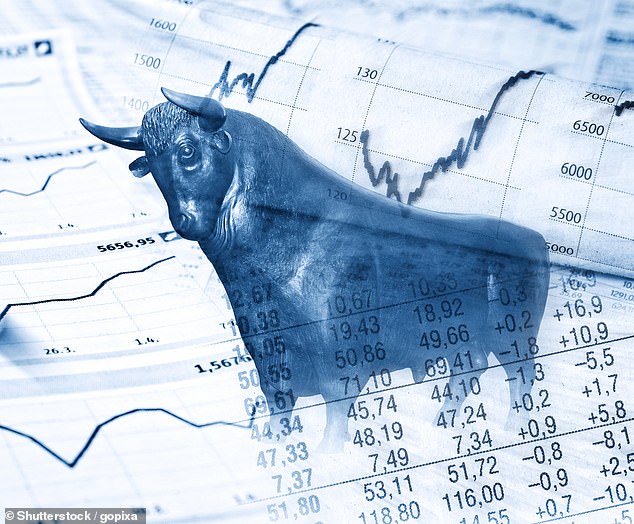Table of Contents
These are nervous times. UK investors and taxpayers fear we will all be hit by whatever Chancellor Rachel Reeves ends up doing in the October 30 Budget. But investors everywhere are worried. And from a global perspective, the most troubling concerns are in the United States.
Let’s put American politics aside and look at the numbers. Last week, the Congressional Budget Office estimated that the budget deficit for 2024 would be $1.8 trillion (£1.4 trillion), equivalent to about 6.5 percent of gross domestic product. . That is unsustainable.
Maybe the next president, whoever it is, can keep going a little longer, but at some point there will be a crisis.
Investors will demand higher interest rates to finance debt, and that will change everything.
The current surge in US stocks (the S&P 500 hit another record last week and is up 22 percent so far this year) is justified by the assumption that money will be cheaper next year.
Looking ahead: We all know bull markets come to an end
The fact that bond yields have remained stable until now, despite the huge public deficit, also depends on this. But the Federal Reserve can only keep cutting rates if inflation continues to fall.
If there is any serious evidence that the US consumer price index is starting to rise again – and the latest 2.4 percent figure was slightly disappointing – that support fades.
So US stocks are vulnerable. It’s been an amazing boom, and investors around the world who own US stocks will have had a wonderful ride.
But we all know that bull markets come to an end, whether with a whimper or a bang. At some point in the future, one or the other awaits us. What can we say about it?
Well, commentators in the United States are in the usual camps: the largest and most established generally expect markets to continue doing well, and maverick advisors warning, if not of a collapse, then at least of a “correction.”
I like the idea of a correction, technically a 10 percent drop in the market, reflecting the idea that things have gotten a little out of control but if prices go down a little everything will be hunky-dory. In the very long term, that must be true. Never bet against the American economy.
But some work by the London-based consulting firm Longview Economics suggests that the coming months could be very eventful.
It uses complex pricing models to reach this conclusion, but the bottom line is that there is “a high probability of an imminent ‘wave of risk aversion’, and that ‘this bull run is due to a major setback.'”
My own view is that since the US bull market has lasted two years, at some point soon there will inevitably be a pullback, and the questions really are about the timing and extent of the decline.
In the first, the trigger could be American politics, a worsening of already deeply worrying international conflicts, a sharp jump in inflation – or simply one of the sudden mood swings that sometimes occur without any specific cause.
As for the scale of the decline, I think that as far as the US economy is concerned, a mid-cycle lull is more likely than a serious recession.
If this is true, even a sharp market decline would be reversed fairly soon.
What is beyond doubt, however, is that this has become an unloved bull market.
If sales really accelerated, many weak holders would feel it’s time to take some profits.
And us? For UK investors there is an immediate excuse to take profits, whether from US holdings or elsewhere. Capital gains tax will almost certainly increase in the Budget. So it’s a no-brainer for anyone lucky enough to have some gains they were thinking of getting to move on quickly, if they don’t have a tax-efficient pension or Isa. There is good anecdotal evidence that they are doing just that.
If there is going to be a sharp decline in the US markets, it would be naive not to expect a decline here as well.
DIY INVESTMENT PLATFORMS

AJ Bell

AJ Bell
Easy investing and ready-to-use portfolios

Hargreaves Lansdown

Hargreaves Lansdown
Free Fund Trading and Investment Ideas

interactive inverter

interactive inverter
Fixed fee investing from £4.99 per month

sax

sax
Get £200 back in trading fees

Trade 212

Trade 212
Free trading and no account commission
Affiliate links: If you purchase a This is Money product you may earn a commission. These offers are chosen by our editorial team as we think they are worth highlighting. This does not affect our editorial independence.

